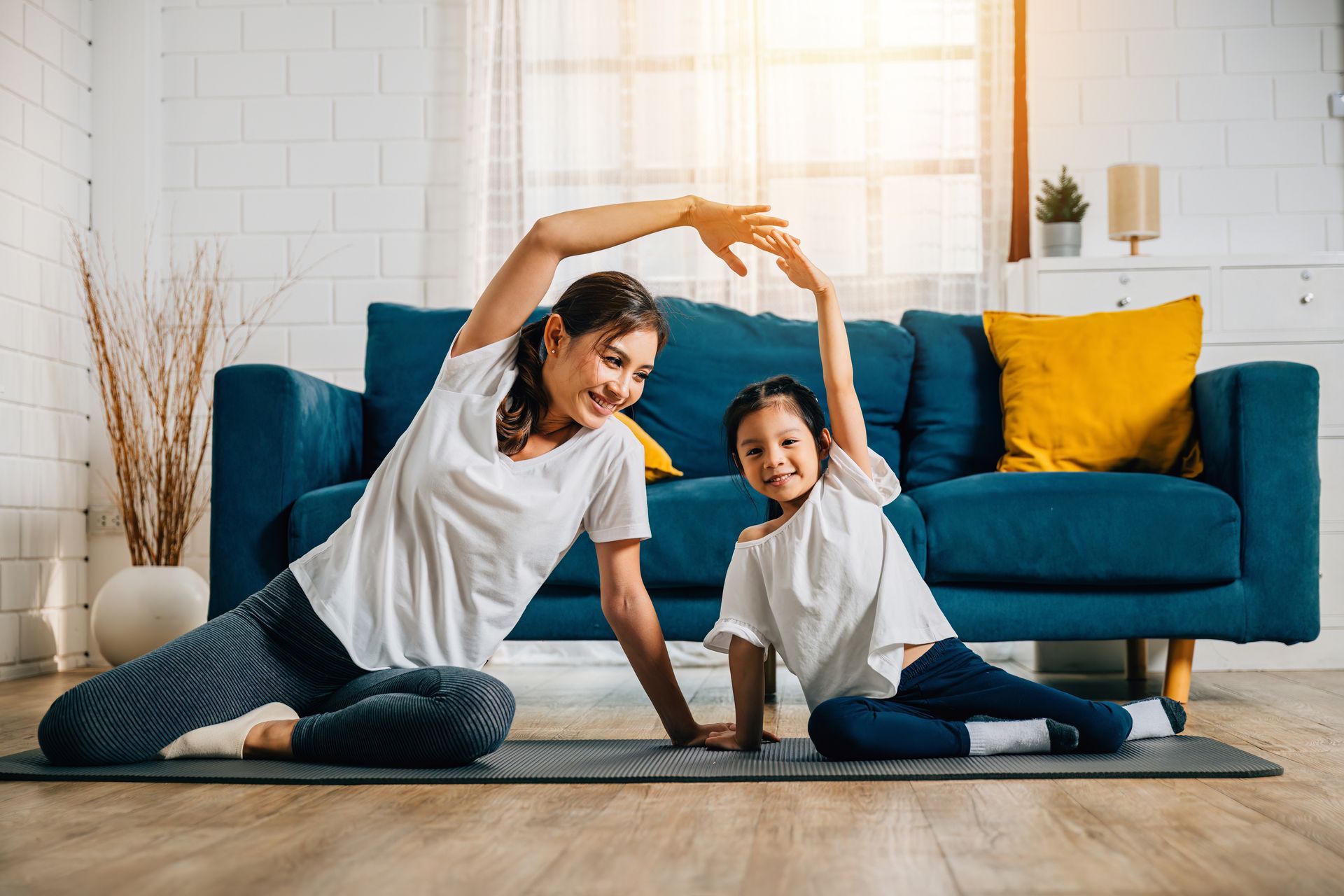
The Importance of Fathers: Why You Should Be Involved

There is no shortage of statistics showing how important the role of father's is when it comes to raising happy and healthy children. But it seems that often, only mothers and their grown up kids are reading these articles. Dads! Wake Up! Read the good news about you.
In my counselling practice, I have been working with adults for years and with the passing years and my constant exploration with these adults, we invariably find ourselves sitting and talking to a child; their inner child, or we are revisiting the childhood in some way or another. It’s uncanny how many adults are stuck in some part of their childhood and when this happens, invariably a very influential parent is standing nearby in that scene or memory. They are there, either building up or tearing down the construct of self for that child. This can often get passed on in the form of an internal dialogue.
Internal dialogues can be positive or negative: judging, accessing, criticisms, encouragement, disapproval, rejecting and many more. They all have an impact.
This is why I am often finding myself going back to childhood with my clients. It's there, where they find many of the internal dialogues that are now dictating their actions.
In my couple's work, I often cite a well-known author John Gottman. He is world famous for his research on couples. However in recent months even Mr. Gottman and his wife are moving more towards work that is focused on parenting and the child experience. They have shifted because their own studies have highlighted the importance the parent's role plays in the child's healthy development and future relationships. Surprisingly their studies show that a father's role can be even more vital than at mothers in certain areas of development. No offense, Moms.
John and Julie Gottmans' studies have even gone so far as to shown that men and women are less likely to go to war when they have an involved father in their upbringing. "Fathers are probably the most important predictors of emotional development for sons and daughters," says Gottman, whose own research by the Bringing Baby Home program shows that when dads act as an emotion coach, by valuing and encouraging emotions, children are physically healthier, have fewer colds and illnesses, higher self-esteem and a strong sense of social connection. When dads communicate with their children about the emotions they are experiencing, behavioural problems decrease. Since all emotions have a purpose, involved fathers attending to emotions of their children, help the child to learn how to set boundaries to manage their experiences as well as how to respect the feelings of others which has shown to help increase mental, physical and social well-being.
Children with dads who are critical or dismissing of emotions are more likely to do poorly in school, fight more with friends and have poor health.
It's also known that children living in father absent homes are more likely to have emotional and behavioural problems, be suspended from school or drop out, be victims of child abuse or neglect, use drugs and commit suicide when in their teens. I even had a client recently say "No Dad is better than a bad Dad". I agree in part. Being critical and dismissive can cause more damage than not being there. But being present and positively participating, whether you have fathering skills or not, goes a long way to helping a child develop.
Parenting is an art like golf or speed texting on a BB while sipping a pint and negotiating mega deals. The craft can be honed only through more exposure to the experience. It can't just be learned from watching a movie. Although I do recommend It's a Wonderful Life and Pursuit of Happyness.
Even golfers go to gurus to find out how to enter Zen on the 18th hole. So there is nothing wrong with seeking guidance from experts when it comes to the Do's and Don'ts in fathering.
Here are just a few to start with and you will probably recognize that many of them are common sense but rely on an intimate knowledge of the child in order to work. James Dobson in his book, How to Build Confidence In Your Child writes, "The art of good parenting begins with the fundamental skill of seeing through the eyes of the child, of sharing the child's view of reality, feelings and hopes."
Here are some common sense Do's and Don'ts: Try to picture each scenario through the eyes of your child.
- Don't ask a question, demand an answer then talk before they have a chance to respond.
"Should we have eggs for breakfast? I think it would be good for you. Let's have cereal for breakfast." - Don't attempt to scold them for one thing when you are angry about something else.
"It's your fault I missed my important phone call. If you hadn't asked me that question I would have been paying attention." - Don't miss their appeals for a connection or affection.
”Daddy, can I have a hug?” “Not right now. Daddy's reading.” - Don't curse in anger. It's just scary and they miss the point.
Self explanatory. - Don't look elsewhere when they are trying to speak to you.
"Daddy, I had a question." "Yes dear." "Daddy." "Yes" ". I had a question." Yes dear, go ahead." "Daddy, can you look at me for a minute?" - Do as you say and as you do.
"Daddy, you're here! " "I said I would make it for your school play. So I re-arranged my schedule." - Do spend time creating and playing with them.
- "Let me show you a game I used to play with my father."
- Do use empathetic listening with them; repeating what you understand about their expressed feelings.
"When you complained about Daddy's job does that mean you miss me and want me to come home earlier?" - Do ask open ended questions when wanting to understand them better.
"How did that make you feel when you heard Daddy shouting earlier?" - Do express love and affection.
"Can I have a hug? I missed you."
We are models to our children. They learn through our example. They watch how we cope with problems and handle depression and handle infractions with others.
In psychology this is known simply as modelling. Children are the products of their subjective life experiences and these are in no small part comprised of what they observe in their parents.
We all know the declaration of not wanting to turn out like our parents, only to do just that. This means that a boy will be learning how to treat women in relationships in part, by his observation of how his father treats his mother: the way you talk to her and address her concerns and show interest in her needs.
The same man's daughter is also learning what to expect in her own relationships with men in the future. If its dysfunctional there is a likelihood that she can grown familiar with this and even find the dysfunction more comfortable, since she has already learned from her mother, and father, how to navigate in that environment.
Pay attention to the modelling that you are doing in all aspects of your role as father. It's a privilege to be a father, and I assure you that the privilege will be all yours when you are watching your young ones walk gracefully and happily into their own adult lives.
About the Author: Dr. Glenn Graves is an American psychologist who has lived and worked in Asia since 2004. The founder and director of Counseling Perspective, Glenn has nearly two decades of experience in providing counselling support to local and expatriate individuals, couples, and families in Singapore. His specialities include child counselling and trauma recovery. Read Full Bio >










Counseling Perspective is a center for counseling in Singapore. We offer an integrated approach to therapy using techniques and tools tailored specifically to our clients and the issues they face. We help clients so that they can feel empowered to make healthy decisions themselves. We work with adults, kids, couples, and families.
OUR COUNSELING CENTER LOCATIONS:
Counseling Perspective at Raffles Place
9 Raffles Place
Republic Plaza I, 9th Floor
Singapore 048619
Counseling Perspective at Oasis
87 Science Park Drive
#03-01 The Oasis
Singapore 118260
Counseling Perspective at Joo Chiat
291 Joo Chiat Road #05-02
Singapore 427543
Call/Whatsapp:
+65 9853 7253 or
+65 9636 8060
Newsletter
All Rights Reserved | Counseling Perspective